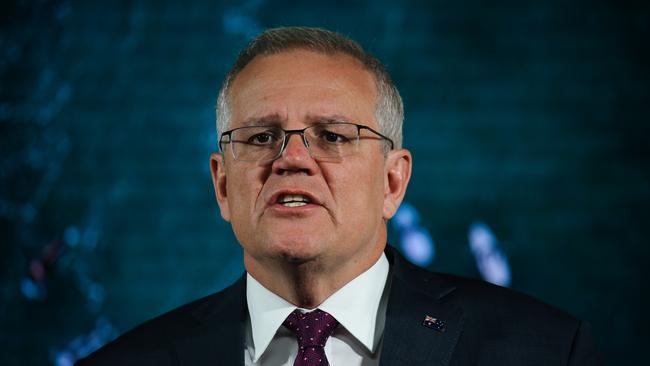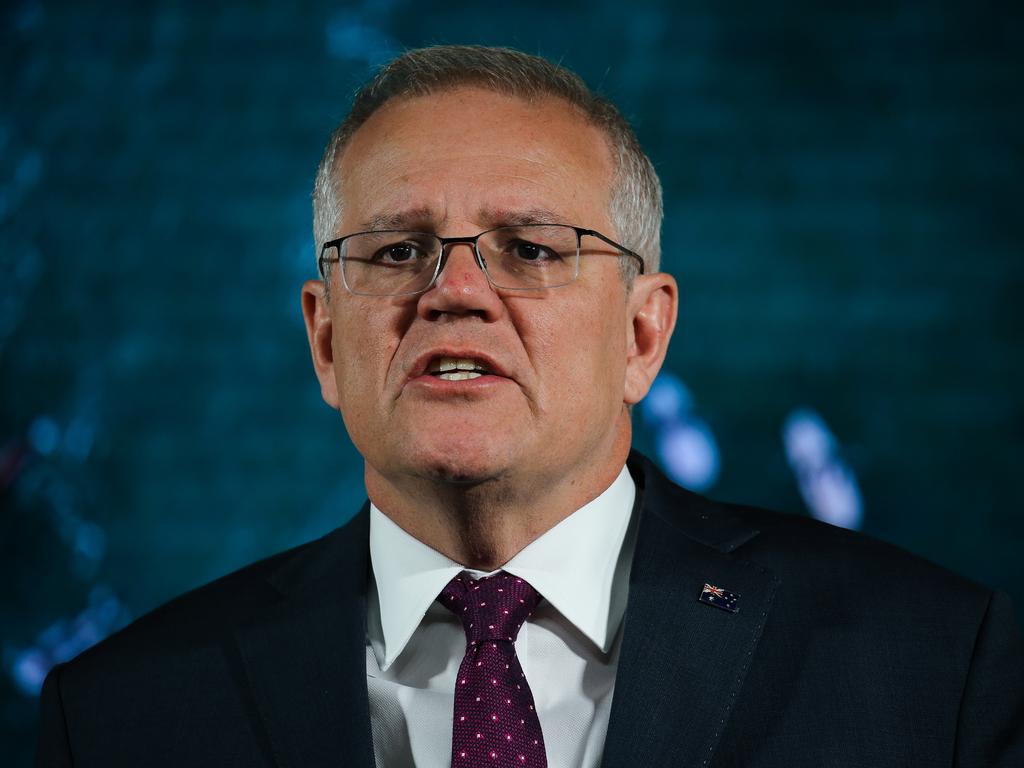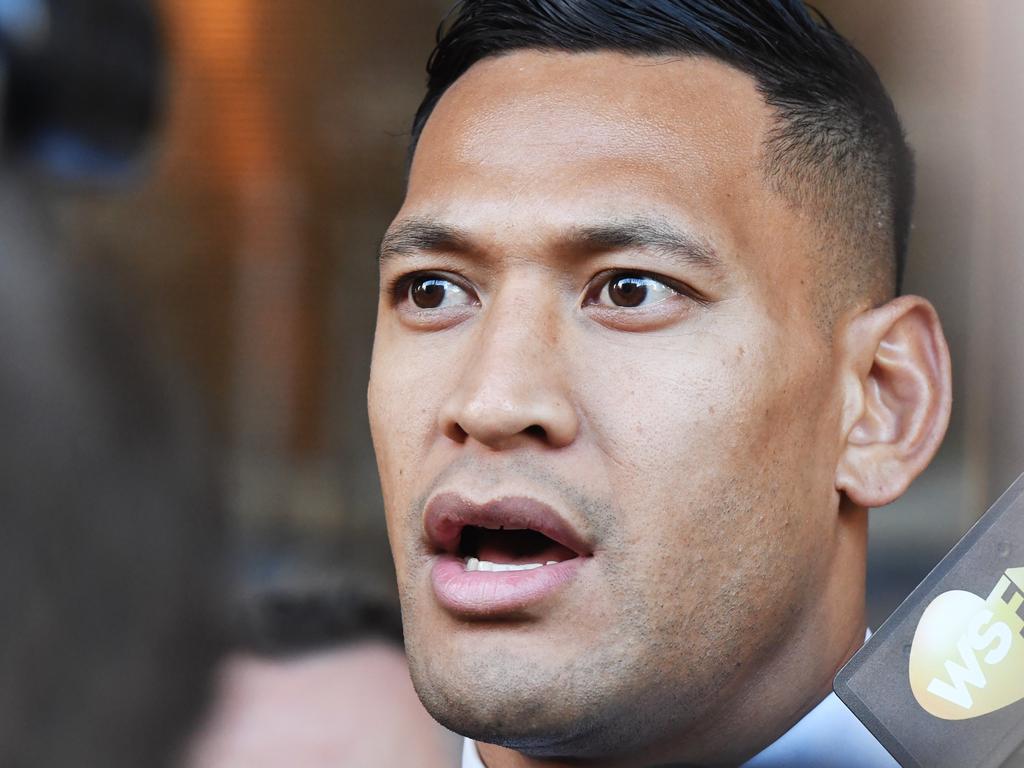
This is the essential problem: rights are important, but when they clash, as they often do, some are more important than others. And, these days, the right of gays not to be offended normally trumps the right of religious believers to quote scripture.
It was Malcolm Turnbull who originally promised to protect religious freedom in the aftermath of the same-sex marriage debate. Religious schools, in particular, worried that they might be prevented from teaching the sacramental view of marriage as the lifelong, faithful union of a man and a woman, open to children.
At the 2019 election, Scott Morrison renewed this pledge but legislation has been delayed due to internal arguments over a “Folau clause”, designed to protect employees from dismissal for expressing an honestly held religious belief. The government hasn’t released the proposed legislation but reportedly has briefed backbenchers that an earlier version, which would have required large businesses to demonstrate financial damage in order to sack someone for making a religious statement, has been dropped. Instead, the legislation reportedly prevents professional bodies from striking off people on the basis of religious belief and allows religious schools and hospitals to preferentially employ people of their own faith. However, it reportedly does not protect a religious individual or entity’s conscientious objection to providing treatment and certainly won’t allow anyone to refuse service to someone else based on religious qualms.
In other words, as reported, the bill to protect religious freedoms would stop only the deregistration, but not the prosecution, of a doctor who refused to perform abortions (say) because of a religious objection. As reported on Wednesday morning, the bill would not have stopped Rugby Australia from sacking Folau for his social media post that largely quoted a passage from the world’s most famous book that “drunks, homosexuals, adulterers, liars, fornicators, thieves, atheists (and) idolators” were destined for hell (although late on Wednesday government briefers suggested it might, provided the statement of belief wasn’t “malicious” and wouldn’t “vilify”). Either way, even if the Morrison government’s protection of religion is designed to override state laws, it would not protect the faith-based hospitals threatened by the recent Queensland laws designed to guarantee access to assisted suicide. Hence the question: does the bill add anything to the protections already available – or, by further defining religious freedom, does it actually have the perverse impact of narrowing it?
As much as I fear the diminution of religious liberty, the conservative lawyer in me is very uncomfortable with codifying rights because right now we have the freedom to do anything that’s not expressly prohibited rather than only the freedom that the parliament has allowed us. That’s the issue with the Andrews government’s draconian new pandemic legislation, and the argument against a constitutional bill of rights.
As envisaged, anti-discrimination law was designed to be a shield protecting the right of minority individuals to be treated exactly the same as everyone else. It was meant to ensure the fair go for women, racial minorities and gays that they’d often been denied. And fair enough, too. These laws have worked so well as moral teachers that it’s now unthinkable that an employer would refuse to hire someone, or pay someone less, on the basis of race or gender.
The problem is that minority activists have turned the shield into a sword. For instance, they’ve weaponised laws such as section 18C of the Racial Discrimination Act to persecute Queensland students who objected to an “Indigenous only” workspace, and to harass the late, great cartoonist Bill Leak for his depiction of Indigenous family dysfunction.
As reported, the Morrison government’s bill would probably stop a Victorian doctor from being struck off for urging a patient against sex change treatment, but not from prosecution for doing just that under current Victorian law. As reported, the bill would probably stop a faith-based hospital in Queensland from deregistration for refusing to provide assisted suicide but, once assisted suicide is legal from the beginning of 2023, wouldn’t allow it to prevent a doctor entering the hospital to provide lethal treatment to patients who’d requested it.
In a conservative society that valued tradition and respected the Judaeo-Christian ethic, anti-discrimination law protected people from a harsh application of religious teaching. It stopped “sinners” from being sacked on account of their “sin”. But in today’s very different society, where religion (especially Christianity) is regarded as obscurantist at best, anti-discrimination law is more likely to be used against people of religious faith to prevent them from proclaiming or practising any aspect of their faith that offends secular progressives on the grounds that it interferes with the rights of others. I wonder, though – would Folau have copped the same condemnation had he been a Muslim quoting the hadith that “if you find anyone doing as Lot’s people did, kill the one who does it and the one to whom it is done”.
For centuries, in the common law tradition, rights were protected via the law of torts.
Aggrieved individuals would approach the courts seeking the righting of a specific wrong. This is what poet Alfred, Lord Tennyson was referring to in his description of England as “A land of just and old renown, Where freedom broadens slowly down, From precedent to precedent”. With the rights of minorities to equal treatment now universally accepted, at least here in Australia, and given that it’s human rights legislation that’s arguably now diminishing human rights, perhaps what we need is not more legislation but less.
Perhaps the best the government could do here is not to try to legislatively anticipate and resolve in advance all of the competing claims about where one right ends and another begins, but just speak out clearly when problems arise; and if needed, “narrowcast” laws to just those circumstances and resist sweeping blunt laws that risk taking away more than they preserve.
In any event, given that the religious freedom bill would have to pass the House of Representatives, be considered by a Senate committee and then run the gauntlet of an upper house where the government lacks a majority, all before the parliament is prorogued in the first few months of next year, with an already crowded legislative timetable, this is really an academic exercise. It allows the government to say it has kept an election commitment, without finally having to resolve the conflict of rights that the Turnbull commitment always entailed. This way the issue is kept alive to be used in a recycled appeal to religious voters. And don’t be fooled into thinking religious voters are just on the centre right, either. Many of the must-win seats in western Sydney and elsewhere pick up religious voters on the left who remain concerned about the anti-religious bent of modern Labor.
Canny politician that he is, perhaps that’s what Morrison intended all along.






On the face of it, it’s good that the Morrison government believes in religious freedom and wants to see it protected. But the government also believes in maintaining all existing protections against discrimination; the issue – as Israel Folau found – is that the right of some to maintain their religious truth clashes with the right of others to cherish the life they choose.